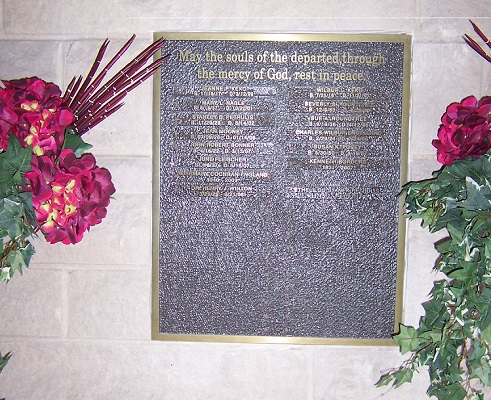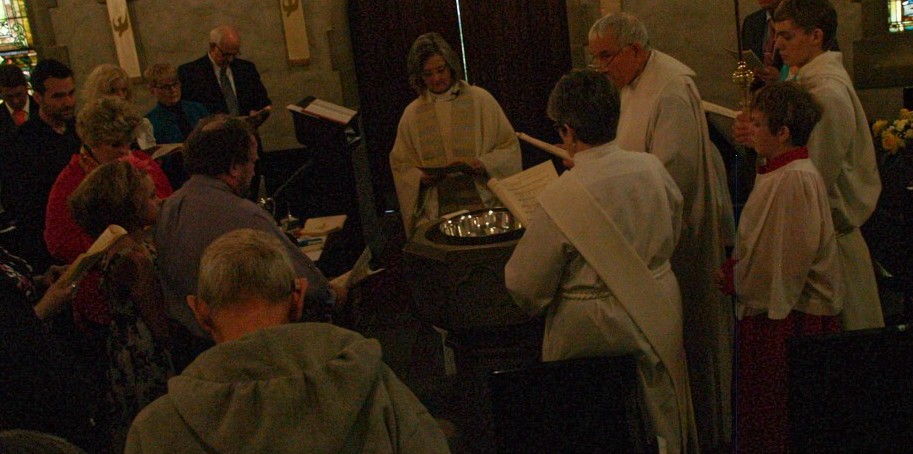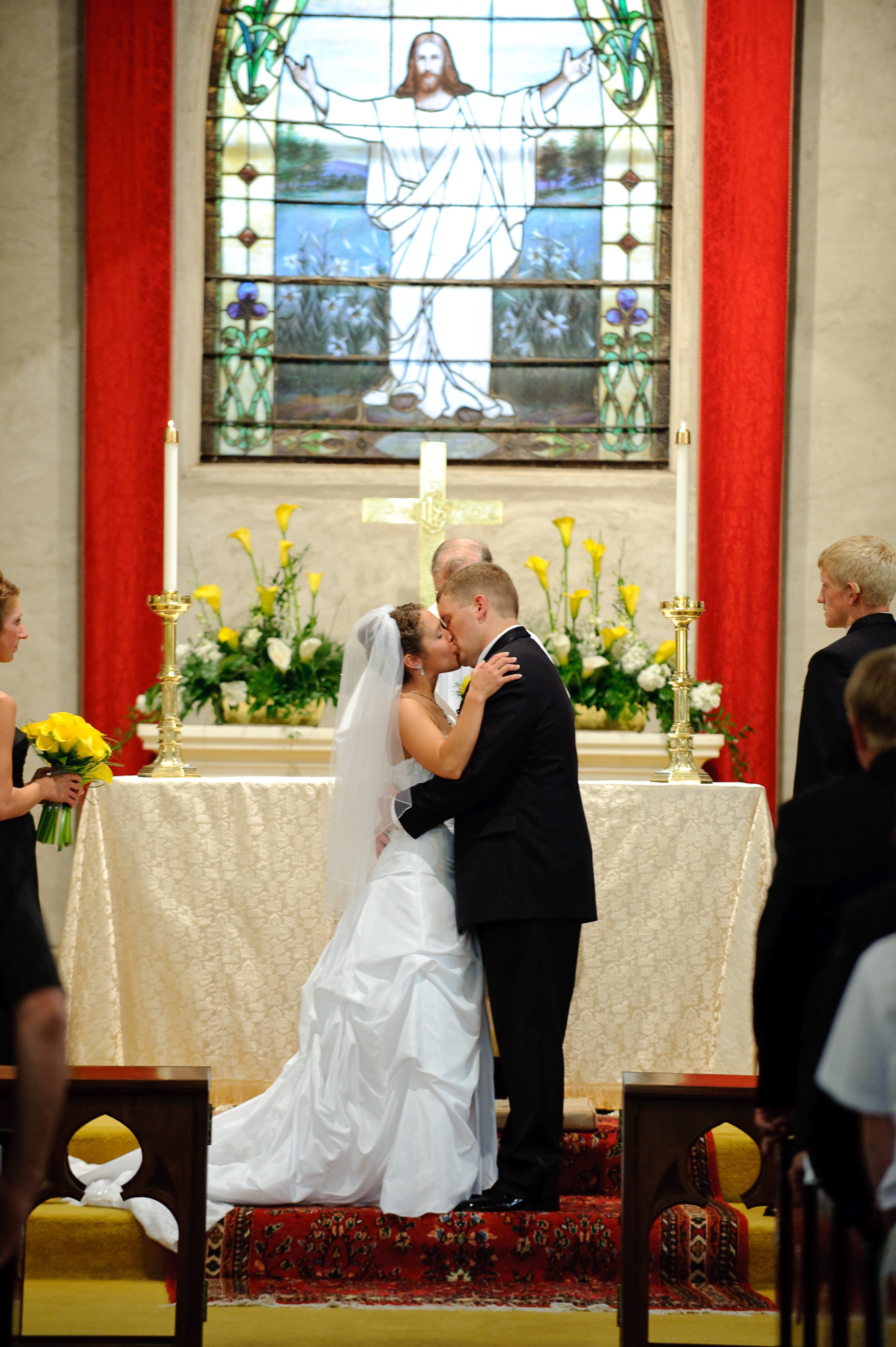Baptism, weddings, and funerals are important transitions in the lives of individuals, families, and our church community. If you are interested in exploring being baptized, married, or holding a funeral in St. Stephen’s, we would love to talk to you about what these ceremonies mean in our tradition and how we approach them.
Baptism
Baptism is the ritual of identity as a Christian, the ceremony marking a person a member of the Body of Christ. Our church considers it a sacrament, which means an outward and visible sign of an inward and spiritual grace. (For a fuller explanation of sacrament, see our glossary here.) Baptism is individual; we receive a name that is ours alone, and living into our baptism will be the joy and challenge of a lifetime. Baptism is also a community event. Somehow, by means too deep for words, we bind ourselves to a people as old as the children of Israel led out of slavery, as fresh as those gathered around the font who promise to support us in our life in Christ. We make promises to each other and to God about how we will respond in the world, in real ways, to this gift of identity. It is a work of the Holy Spirit and a mystery. In the Episcopal Church, infants, children, and adults may be baptized. If you desire to know more about baptism for you or a member of your family, talking to the priest is the place to begin. Send our rector an email by clicking here. Baptism is most appropriately celebrated during a worship service. Traditionally, baptisms are scheduled for the Easter Vigil (the evening before Easter), on the Day of Pentecost (in April or May, 6 weeks after Easter), on All Saints’ Sunday (the first Sunday in November), and on the Feast of the Baptism of our Lord (the Sunday after Epiphany, which is January 6).
For more on the meaning of baptism in the Anglican tradition, check out Archbishop of Canterbury Justin Welby’s beautiful explanation in the context of christening Prince George of Canterbury:
Weddings
The Celebration and Blessing of a Marriage is one of the great joys of parish life, as the church community surrounds and supports a couple beginning their life together. The rite is a service of Christian worship, another sacrament, and marriages performed at St. Stephen’s follow the service outlines in the Book of Common Prayer. In the Episcopal Church it is required that at least one of the parties be a baptized Christian.
We do recognize that weddings are a threshold into new life and that sometimes the new life includes a new faith community. So weddings of those who are not already associated with and contributing to St. Stephen’s, either personally or through their family, may be considered at the sole discretion of our clergy. Fees are involved in such cases. The first step is to join us for worship on a Sunday and, again, to talk to the priest.
The Episcopal Church has authorized for provisional use the rite for ‘The Witnessing and Blessing of a Lifelong Covenant.’ St. Stephen’s vestry has resolved in April of 2014:
The Vestry and Clergy of St. Stephen’s Episcopal Church shall not discriminate on the basis of sexual orientation or expression. The Clergy, in discharge of clerical and pastoral ministries, may officiate the provisional liturgy for Witnessing and Blessing of a Lifelong Covenant consistent with the canon of The Episcopal Church and the pastoral guidelines of the Bishop of Indianapolis. The Vestry further affirms that clergy must exercise the same reasonable discretion and authority in this regard as s/he is charged to do in the administration of the sacraments.
For further information about the rite or its use, please contact the priest. The requirements, preparation and guidelines are similar to those for marriage. As for weddings, the priest has sole discretion over the use of the covenant rite.
Funerals
The death of a member of the church should be reported as soon as possible to the church office, and arrangements for the funeral should be made in consultation with the clergy of St. Stephen’s, even if the loved one has not been recently active in the life of the parish.
 Baptized Christians are properly buried from the church, and if all possible the service should be held at a time when the congregation can be present. (Practically speaking, because St. Stephen’s is near Indiana State University, the availability of adequate parking must always be considered before service times are finalized.) Interment of ashes in the Mabley Garden is available to parishioners past and present and to others at the discretion of the clergy.
Baptized Christians are properly buried from the church, and if all possible the service should be held at a time when the congregation can be present. (Practically speaking, because St. Stephen’s is near Indiana State University, the availability of adequate parking must always be considered before service times are finalized.) Interment of ashes in the Mabley Garden is available to parishioners past and present and to others at the discretion of the clergy.
It is always appropriate to contact the clergy of St. Stephen’s at the death of a friend or loved one. Your loss is important and may be remembered by name in our Prayers of the People at any time. The clergy are often willing to officiate burials for Episcopalians from out-of-town or for those who have no minister of their own to call upon during this time.
Preplanning your own funeral is a priceless gift to your family. Our Funeral Planning Guide is available to help you make your wishes known and will be kept on file in our office. Click here to access a PDF copy of the guide, which can be printed out, filled in, and conveyed to the office. Please contact the clergy if you have questions about this process.
May the souls of all the faithful departed, through the mercy of God, rest in peace. Amen.

